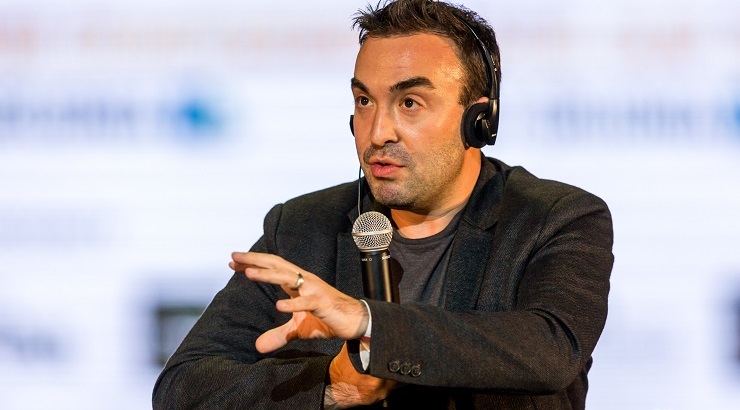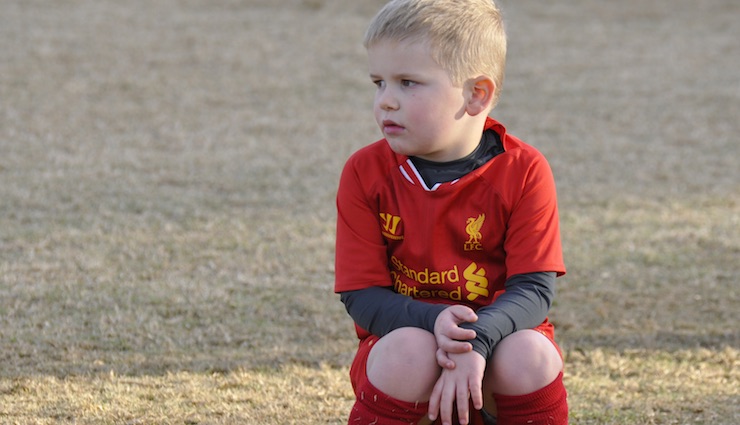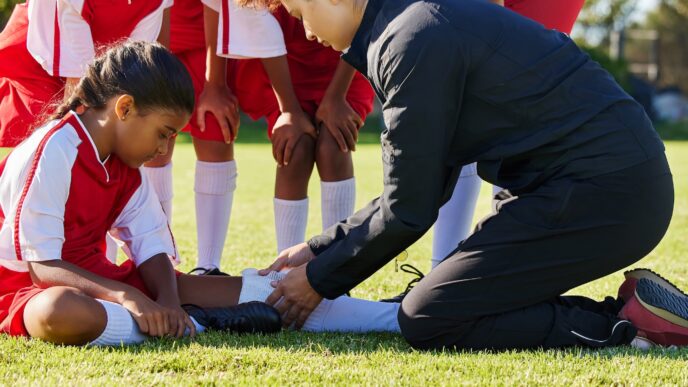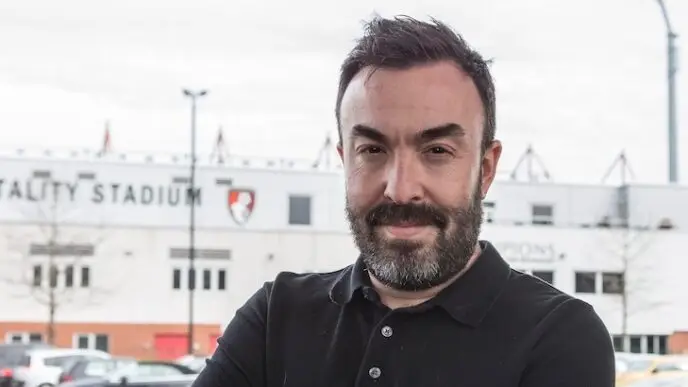Mental Strength: Being A Soccer Parent Is Wonderful But Not Always Easy
How can you enhance your youth soccer player’s love of soccer? Play with your kids.

No pressure free play with backyard games.
Youth Soccer News: It’s tough being a soccer parent, especially if your child has ambitions for his or her game.
HOW DO YOU COMMUNICATE WITH YOUR YOUTH SOCCER PLAYER?
Do you go in strong, ferociously supporting their ambition? Or do you back off, letting them take the lead and allowing them to be the expert on their personal journey in the beautiful game?
The answer probably lies somewhere in between, and probably needs to be flexible enough to allow for a little of both extremes to exist occasionally.
And this ‘ambiguity’ is what makes sports’ parenting so challenging.
There’s no concrete answer. There’s no ‘way of doing it.’ And in this three-part article series, I will introduce you to some guidelines, some words to help support you, and some ideas for you to carry with you in your day-to-day support for your young soccer player.

Soccer Parents: Let’s begin at the beginning.
Your child is somewhere between 6 and 10 and LOVES soccer. Adores it!
You love the fact they love it too. It fills you with joy.
Firstly, and perhaps most importantly, it’s not a computer game! It gets your child out of the house, running around enjoying themselves, playing with other kids and developing movement skills.
Because these are the most important things at this age—having fun, learning life skills, and experiencing bodily movements that build agility, balance, and coordination.
Now, being a parent you want the best for your child. And when you have a young gun who spends every day wearing a Manchester United jersey or Portland Thorns top, and who has a soccer ball permanently attached to their feet, your brain will go off on tangents envisioning a future filled with soccer success. You care for your child so that you might be thinking far ahead about college scholarships and potential careers in the game.
But wait…stop!
I thoroughly recommend that you manage your ambition at this very early stage, even if your child talks endlessly about wanting to play at the famous Barcelona Nou Camp one day. It’s too soon.
Perhaps most importantly, the best way to facilitate your child’s game at this very early stage is to help him or her retain that feeling of fun and that sense of love for the game.
THE SCIENCE AGREES WITH THIS.
We now know that your child is probably far better served playing lots of sports.
Youth soccer players who have the opportunity to experience multi-sports at a very young age have a better chance of developing the strength, agility, balance, and coordination that elite-level soccer requires.
Sports such as golf, tennis, gymnastics, and baseball are all great options. The more soccer players run, turn, and twist, the more their bodies and nervous systems become equipped with the reaction speed and movement flexibility that soccer demands.
There are other reasons and burnout can become an issue.

Those kids who do nothing but play soccer between 6 and 10 years of age may clock up those practice hours sooner, but repetitive movements can quickly catch up with them. Injury can prove a problem during their teenage years. And even more pertinently, burnout can become an issue.
By high school, passionate young soccer players can be done with the game if all they’ve done is play soccer – training session after training session, game after game.
IT’S A MARATHON, NOT A SPRINT.
Soccer is what we describe as a late specialization sport. You don’t have to be brilliant when you’re 8, and what research has shown is that those great 8-year-olds rarely become the great 20-year-olds with College scholarships or those 25-year-olds winning the plaudits at the World Cup.
Youth Soccer Parents – What can you do?
Well, first and foremost, be mom or dad. This means being the chauffeur and being the CEO of sporting fun. If they love soccer, then you are better served to get to know who Allie Long (midfielder for the Seattle Reign FC playing in the National Women’s Soccer League) is or who Flamini (French midfielder who plays for Spanish club Getafe) is than striving to learn about advanced training methods for elite players.

Now here’s something you can practically do that’s fun, that your child will love, and that puts no pressure on your child but does develop their game. Go into your backyard and play with your youth soccer player(s).
Kick a ball around. But do so with an eye on playing games. Create a space with a goal and make up some rules. Your child is only allowed to score after doing a fun little skill. Your child has to use their weak side foot to score. Make the goal small. Set them a fun tricks challenge to accomplish. You can do this on the beach, in a park or backyard.
AS A PARENT, YOU CAN HELP YOUR PLAYER DEVELOP SKILLS IN A FUN WAY WITH ZERO PRESSURE.
So, in summary, if your child is between 6 and 10 years old and loves soccer, you will positively impact their game if you recognize the importance of fun, physical literacy, and life skills.
If you manage any ambition you might have for them by allowing them to play lots of sports, you will help increase their chances of being lifelong soccer participants. It can also be really helpful to promote backyard games—activities that are fun to play but place emphasis on developing skill.
So in summary, if your child is around the 6-10-year-old mark and loves the game …
JUST LET THEM PLAY.
.
A global sports psychologist and author specializing in soccer, Dan Abrahams is based in England and works with professional soccer players in the English Premier League (EPL). Abrahams has worked with hundreds of soccer players – many who play in the English Premier League (EPL). From working with players at Crystal Palace, QPR, Fulham, and West Ham among others, Abrahams counsels players on how to play at peak performance. Abrahams has authored several books and has a Soccer Academy as well.















